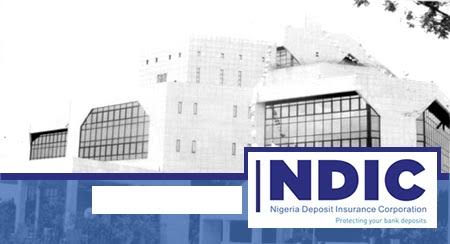The Nigerian Deposit Insurance Corporation (NDIC) has announced an enhanced collaboration with the judiciary to accelerate the prosecution of failed financial institutions, aiming to protect depositors and maintain financial stability, OBSERVERS TIMES report.
READ ALSO: Emirates Flight Arrives in Lagos After Two-Year Hiatus.
Speaking at the 19th Abuja International Trade Fair, themed “Mobility: Options for Transport, Trade Finance, and Taxation,” NDIC’s Managing Director, Bello Hassan, highlighted the initiative’s success in resolving long-standing cases and ensuring 100 percent liquidation dividends to uninsured depositors of over 20 closed banks.
Hassan emphasized the critical role of deposit insurance in maintaining confidence in the financial system. “Deposit insurance acts as a safety net that reassures depositors, builds trust in the banking system, and helps to prevent bank runs during periods of uncertainty,” he stated.
This initiative aligns with the provisions of the Banks and Other Financial Institutions Act 2020 and the NDIC Act 2023, addressing the recurring issue of bank failures. Stakeholders are increasingly demanding legal action against board directors involved in these collapses, underscoring the need for stronger governance and oversight in the banking sector.
Reassuring customers, Hassan affirmed NDIC’s commitment to prosecuting negligent bank board directors to promote financial stability. “The corporation has strengthened its collaboration with the judiciary to expedite the prosecution of failed institutions. This has resulted in the resolution of long-standing cases and the declaration of 100 percent liquidation dividends to uninsured depositors of over 20 closed banks,” he said.
He also noted the use of Alternative Dispute Resolution mechanisms to enhance liquidation activities and improve debt recovery.
Highlighting a recent success, Hassan spoke about the payment of insured deposits to customers affected by the Heritage Bank closure. “In an unprecedented achievement, the NDIC commenced payments to depositors within four days of Heritage Bank’s closure. By leveraging depositors’ Bank Verification Numbers (BVN) as unique identifiers, the corporation was able to identify alternate accounts and credit the insured amounts of up to N5 million directly, without the need for forms or physical visits to NDIC offices,” he explained. This approach has enabled the payment of 84.98 percent of depositors with BVN-linked accounts to date.
The recent increase in deposit insurance coverage from N500,000 to N5 million has significantly mitigated the impact of the bank’s failure on depositors.
Emeka Obegolu, President of the Abuja Chamber of Commerce and Industry, commended NDIC’s commitment to safeguarding depositors and fostering a robust banking system. Represented by the chamber’s Director-General, Agaba-Idu Jideani, Obegolu emphasized the importance of a stable financial system for economic growth and facilitating trade and investment.
“Today, we celebrate not just an institution but a cornerstone of our nation’s financial stability,” Obegolu remarked. “The NDIC has been a critical player in safeguarding depositors, promoting confidence in our banking system, and ensuring the soundness of the financial sector.”
He added that the NDIC’s efforts resonate deeply with the Abuja Chamber of Commerce and Industry’s aspiration to create an enabling environment for businesses to thrive in Nigeria. “As we embrace the theme of this year’s trade fair, ‘Mobility Options for Transportation, Trade Finance, and Taxation,’ I commend the NDIC for fostering trust in our financial ecosystem. A stable and trustworthy financial system is crucial not only for economic progress but also for enabling seamless trade and investment, which strengthens the foundation of national development,” he concluded.


